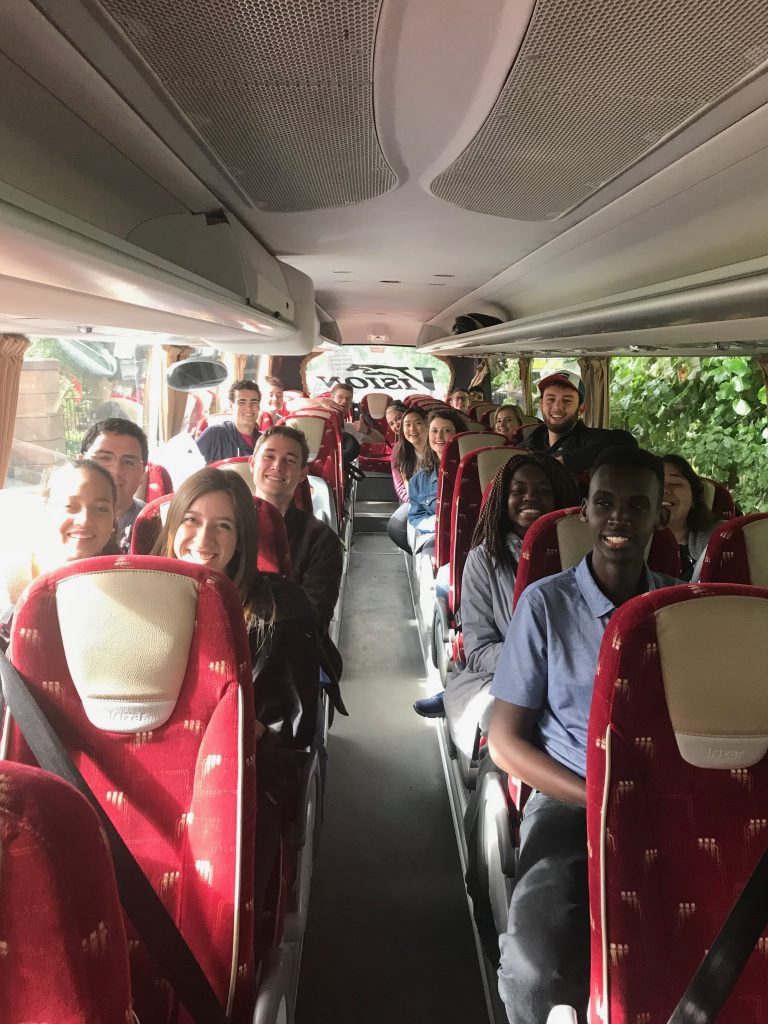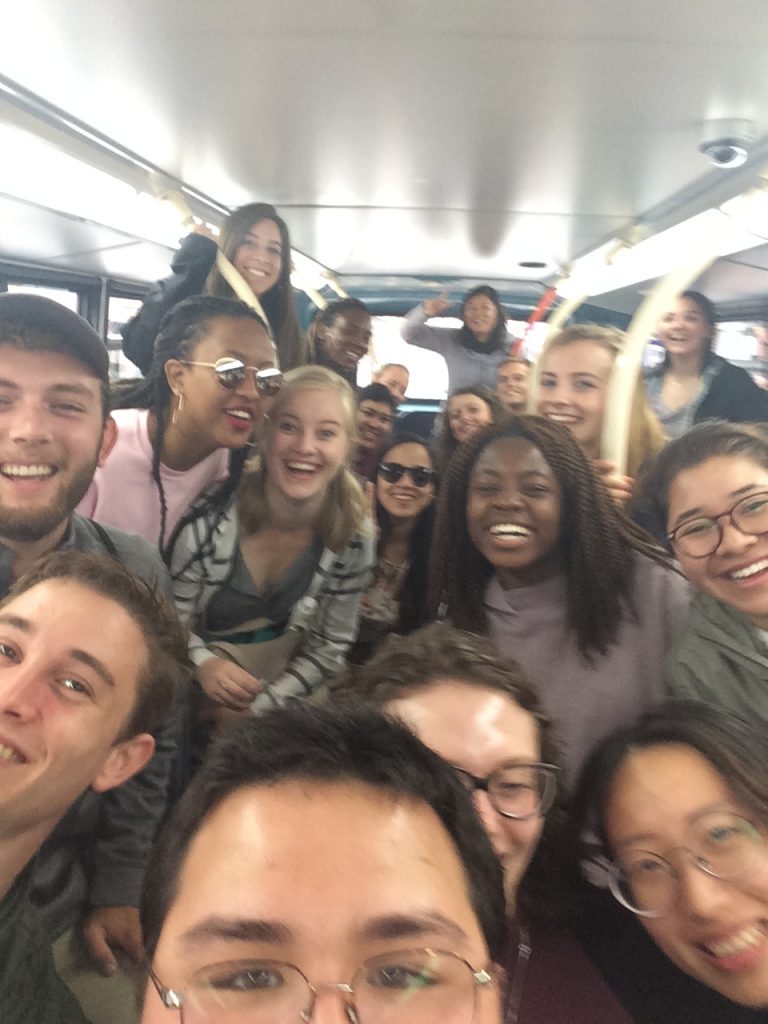As each student pulled themselves away from their beds and into the dining hall this morning they were greeted by an array of tired smiles. It has become clear from body language and conversations that most delegates are filled with the quiet contentment of a job well done. This has been a difficult week. A purposeful, driven, and enriching week which will not soon be forgotten, but difficult nonetheless. The root of the difficulty, at least personally, has been considering everything in a broader context outside of that which comes naturally in my native culture. This has been manifested in discussions about poverty, racial discrimination, political disarray, and unnecessary deaths, as well as remembering to ask for the nearest toilet rather than restroom. At no point in this week has it been possible to consider solely my own culture as a white, heterosexual, Christian male from the United States because the world looks so different for anyone who does not fit into those same categories.
I was reminded this week how profoundly impactful the United States is to the rest of the world. Economic, religious, cultural, political, and scientific changes in the United States are echoed across the globe. From layoffs occurring in India as a result of the Recession, to churches being burned in Pakistan as a result of tweets written by a Florida pastor, I was directly reminded of the world’s interconnectedness. That is not to say that the U.S. is the cause of the world’s problems; in fact, it would seem that this is far from the truth. Delegates and speakers from countries around the world told me about the problems, corruption, or prejudices which occur on a daily basis in their home countries. As I listened to their stories I could hear the same desperate frustration in their voices that I hear from Americans discussing hot-button topics such as immigration, racism, and gun rights where the consensus is that something needs to change while the perfect answer to these problems seem to be a long way off and quite difficult to see.
The realization of the extent of the problems first struck me after three days into my learning track where we discussed problems in the education system and what must be done so that the best education can be given to all students. As we sat in our small classroom, it finally dawned on me that there was no answer the professors leading the session were expecting. The material we covered could not be simply dropped into a multiple choice question were the right answer could be given by filling in a bubble dot. Rather, this is a question facing humanity as a whole, and in a room filled with professors, graduate students, teachers, and myself, all that was clear was that no universal answer to this question seems to exist.
I hope to not misrepresent the Big Hope 2, however; because despite the sad stories and the global issues, this conference was anything but disheartening as the theme of the conference reflected the name of the institute: Hope. As I listened to the keynote speakers and panelists during the discussions I could not help but be impressed by their credentials. I heard from Baronesses, Right Honors, Reverends, Excellencies, Sirs, Colonels, Fathers, Professors, and more. These distinguished individuals took the time out of their surely busy schedules to address us and to encourage our compassion, leadership, and most of all, willingness to create change for the better in our own communities. For most of the conference I fell into the trap of simply listening with awe and admiration at these individuals, regarding what they have done in their pasts and amazing in their own sense; however, the final speaker changed this thought process entirely. Sir Christopher Stone reminded all of the delegates that it is the young who have the greatest ability to change the world today. The speakers at the Big Hope 2 were great individuals with good hearts who want the best for everyone but it will be our generation who will be inheriting those positions and we still have time to live our lives just as richly as our speakers lived theirs.
This conference did not end with the answer for ending war or hunger or pain. In a world so broken by sin it is hard to imagine a place where such problems could be ended entirely, yet hope remains. It remains in the belief that people across the world are much more similar than they are different. It remains in the understanding that a smile and laughter are universal languages. And it remains in the fact that we all want more love in the world. As the Big Hope 2 ended tonight and the delegates flooded into the campus student space this point became even more clear. Individuals across geographical, religious, racial, political, and economic background joined together in a night of singing and dancing from music from across the globe and the friendships that were formed at this conference simply blossomed. In this moment, the problems of the world did not go away but any barriers between delegates did. I suppose that’s what this conference was hoping to accomplish albeit on a global scale, and while I know that when I go back home I will undoubtedly be reminded of how broken this world is, I can still retain the memory of tonight where perhaps God allowed us delegates a quick peek at how He envisioned community.
By Bradley Dixon



